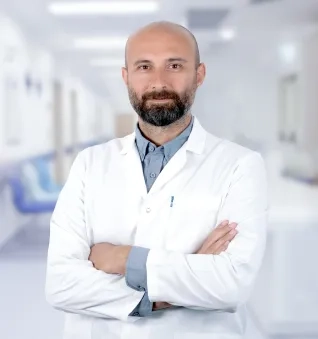Alo Yeditepe
Alo Yeditepe
What is Chemotherapy? How is it Applied?
This content has been prepared to inform you about chemotherapy after you have decided to undergo chemotherapy.
The events you will hear from people who have already received chemotherapy or their relatives may affect you negatively. However, keep in mind that every person is different and the chemotherapy given to everyone is different, and that the side effects that may occur during chemotherapy may not be the same for everyone or may not occur at all.
If you want to know more about the side effects your own chemotherapy may cause, talk to your doctor who will know exactly which medicine you are taking. Your doctor may prescribe medicines to help with side effects or make changes to the way you are treated to reduce side effects. Do not use medicines recommended by others without your doctor's approval.
The drugs used in chemotherapy are not used for research purposes in you. If you need to use an investigational drug, your doctor will discuss the benefits and harms of the drug with you and, if you agree, will administer it.
It is very important that you are properly informed about chemotherapy to prevent or minimize side effects.
If you have any problems, concerns or questions, consulting your doctor and nurse first will prevent you from being misinformed.
What is Chemotherapy?
Chemotherapy is a treatment using cancer drugs that destroy cancer cells and prevent their growth and proliferation. Chemotherapy can be used alone or in combination with radiotherapy, before or after surgery. Many different drugs are used in chemotherapy. A single drug can be used in your treatment or several drugs can be used together.
Why is Chemotherapy Used?
Kanserin türü ve gelişme evresine göre değişmekle birlikte kemoterapinin kullanım amaçları şunlardır:
Treating the disease
Prevent the spread of disease
Slowing the growth of the disease
Destroy cancer cells that may have spread elsewhere
Reducing disease-related discomforts / complaints
How do Chemotherapy Drugs Work?
Almost all chemotherapy drugs are distributed through the bloodstream and prevent tumor cells from dividing and multiplying. While chemotherapy drugs kill tumor cells, they can also affect healthy cells. This can cause side effects, which are usually temporary. Cells that should normally reproduce quickly (hair and bristles, cells lining the mouth and digestive tract, blood cells) are more affected. However, these cells can renew themselves after treatment. The extent to which these cells are affected varies according to the medication and the individual.
How is Chemotherapy Applied?
Your chemotherapy treatments are prepared by specialized pharmacists trained in this field and applied by nurses/doctors.
Where is Chemotherapy Applied?
Chemotherapy given as intravenous infusion can be applied as an inpatient in the hospital or in “outpatient chemotherapy units” in outpatient clinics. Your doctor's treatment policy and hospital rules will determine where you will receive treatment and how you will be treated.
Which Drugs are Used in Chemotherapy And How are They Given?
Depending on the type of chemotherapy and its spread, more than 100 drugs are used in the treatment with different groupings. These drugs, which have different mechanisms of action and different side effects, can be applied alone or in combination with several drugs depending on their effects on the cancer cell, the stage of the disease and the current general condition of the patient. In general, several drugs are applied in a certain order and duration to destroy cancer cells more effectively and reduce side effects.
Chemotherapy drugs are usually given in four ways:
Orally in tablet or capsule form
In the form of intravenous infusion
By intramuscular injection
By injection under the skin
In special cases, it can also be injected into the cerebrospinal fluid or body cavities. The way the drug is applied depends on the location and type of cancer and the properties of the drug. Sometimes two or three routes of chemotherapy can be used together. Your doctor or nurse will explain to you in detail how your medication will be given. Do not change your treatment without consulting your doctor. Do not hesitate to ask for help if you have any questions.
Frequently Asked Questions About Chemotherapy
Can an allergic reaction develop during chemotherapy treatment?
Various allergic reactions may occur during or after the administration of chemotherapy drugs. Inform your nurse or doctor if you experience various complaints such as feeling of distress, palpitations, shortness of breath, redness and blistering of the skin, abdominal pain or if you feel unwell during the application.
Is There Pain During Chemotherapy?
You will not feel any more pain or soreness than you would during a blood draw or any injection. Sometimes the medicine may leak out of the vein and you may feel swelling, redness, pain or burning around the vein where the needle is inserted. If this happens, you should tell your nurse immediately. Because this may be the result of the needle coming out of the vein and if you do not intervene immediately, tissue damage may occur in that area in the future. In addition, sometimes, depending on the drugs given, hardening, darkening or pain may occur in the vein where the drug is given.
What should be the duration and frequency of chemotherapy?
The duration, dose and frequency of chemotherapy depends on the type of your disease, the drugs you are taking and the response of your disease to the drugs. One course of chemotherapy is not enough to destroy all cancer cells. Depending on the type of disease, your general condition and the response of your disease to the treatment, it should be applied several times at regular intervals. The duration, frequency and drug doses are adjusted according to certain predetermined protocols. Chemotherapy can be given daily, weekly or monthly for different periods of time.
The duration and frequency of the treatment protocol will be explained to you by your doctor. However, the planned duration of treatment may change depending on your body's response and your need for treatment, your treatment may be prolonged, or you may be switched to other treatment protocols. Sometimes your treatment may be delayed for a while due to the effects of chemotherapy drugs on the bone marrow. The duration of your one-time treatment depends on the type and number of drugs used in your treatment. Some drugs are applied in half an hour, while others may take an hour, several hours or even 48 hours. Sometimes the treatment may take several days in a row.
Each treatment is followed by a rest period to protect the body from the unwanted effects of chemotherapy drugs. Making the most of the rest periods (good and balanced nutrition, protection against infectious diseases, etc.) will help you to have a more comfortable treatment period.
How is the dose of chemotherapy calculated?
The doses of the drugs given are calculated according to the weight and height of the person. Your doctor will calculate the dose you should take according to your height and weight and prepare your treatment plan.
Should I come hungry for chemotherapy treatment?
You do not need to come to treatment hungry. However, having eaten your meal 1-2 hours before the treatment and preferring light foods will make your treatment comfortable. If you wish, you can bring crackers, water, fruit juice or unroasted nuts, dried fruits to eat during the medication.
Is it harmful to take other medicines during treatment?
Some medicines can interact with chemotherapy drugs, interfere with each other's effects and cause serious side effects. It is very important that you tell your doctor or nurse the name, dose and frequency of each medication you take at home before you start chemotherapy. You should remember that medicines that you do not think of as medicines, such as aspirin, painkillers, cold medicines, herbal medicines, nutritional supplements and vitamins, may also interact with chemotherapy.
- Do not use any medication during treatment without asking your doctor.
- Avoid unnecessary vitamin use.
- Tell your doctor and nurse about all medicines you are taking (including birth control pills, if any).
- Inform your doctor about any medicines that another doctor has recommended to you or that you buy from the pharmacy.
- Do not get hepatitis and flu shots without asking.
How can you tell if chemotherapy is effective on the disease?
During chemotherapy, some imaging tests (such as chest X-ray, ultrasound, computed tomography, magnetic resonance imaging, PET, etc.) and blood tests are performed at intervals deemed appropriate by your doctor to evaluate whether you are responding to the treatment.
How often are check-ups performed and how long do they last? A patient diagnosed with cancer should undergo lifelong check-ups even after the end of treatment.
This is to check whether the disease has recurred and to monitor early and late side effects of chemotherapy. The frequency of your check-ups will be decided by your doctor and explained to you. Although it is different for each disease group, physician visits and some tests will be required with decreasing frequency. In case of bleeding from anywhere between the control periods, intense general weakness, persistent regional pain, persistent nausea and vomiting, persistent headache, etc., it would be appropriate to consult your doctor without waiting for your control appointment.
This content was prepared by Yeditepe University Hospitals Medical Editorial Board.
”
See Also
- How Should Patients Receiving Chemotherapy Eat?
- Is Cancer a Treatable Disease?
- Nutrition in Cancer
- Cancer Treatment Methods
- Treatments that Reduce Life Loss in Cancer Give Hope!
- Do Individualized Treatments Offer Hope for Cancer?
- The Hope of ‘Immunotherapy’ in Advanced-Stage Cancer Treatment
- Cancer Statistics Reveal the Importance of Protecting Against Cancer
- New Research Points to the Important Issues in Breast Cancer
- Found Out That She Had Cancer After Her Accident, and Immunotherapy Was Her Solution!
- Life Support Booklet for Oncology Patients
- False Facts in Cancer
- Lung Cancer
- Most Common Cancers
- Common Misconceptions About Cancer
- New Treatment Approaches Promising in Metastatic Breast Cancer
Alo Yeditepe




